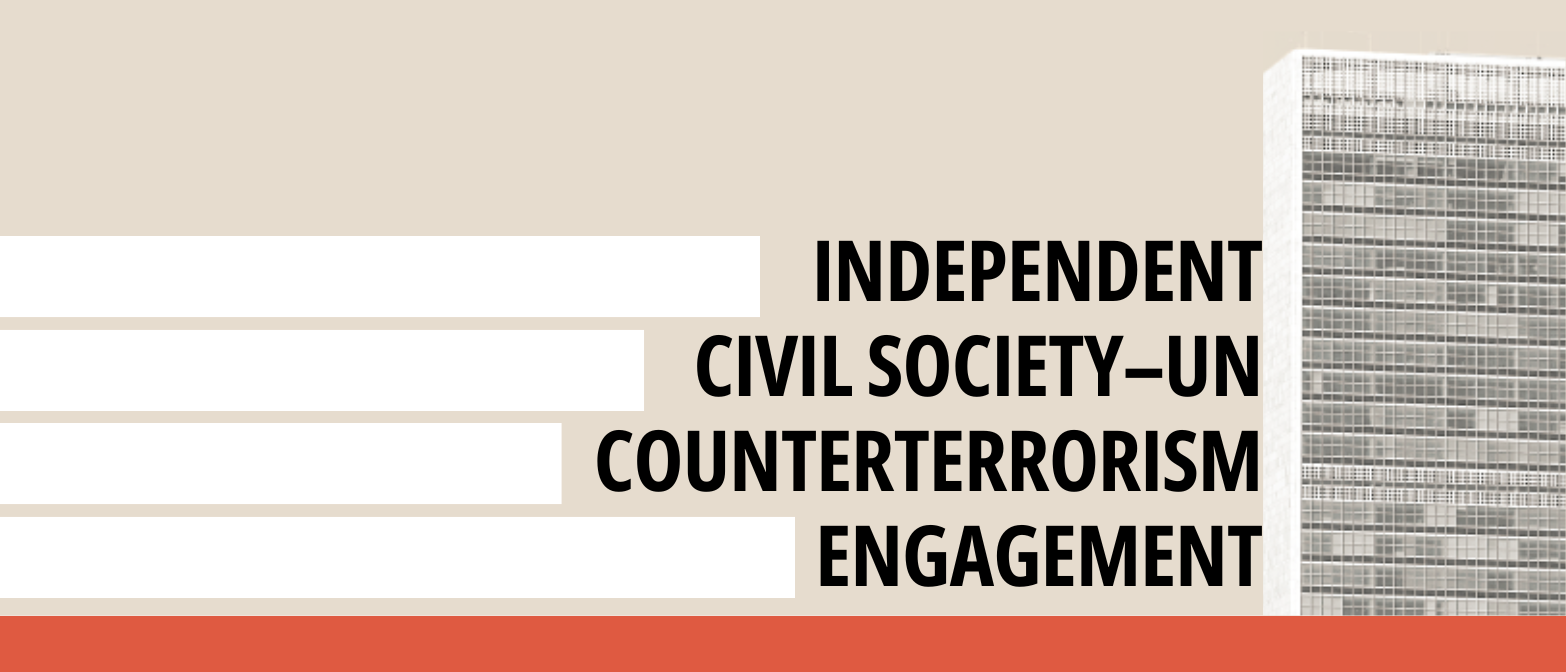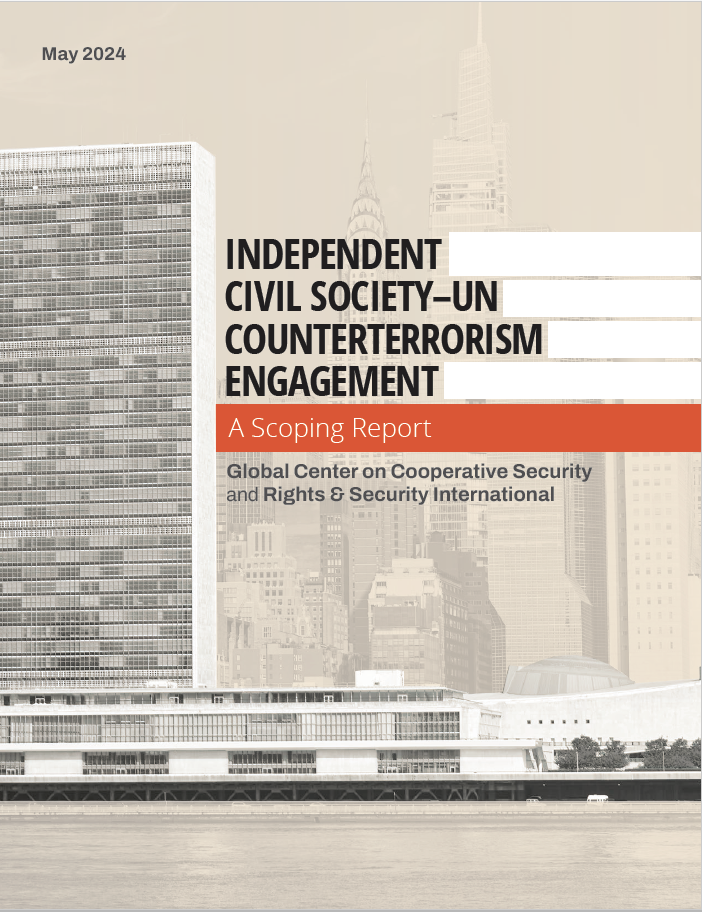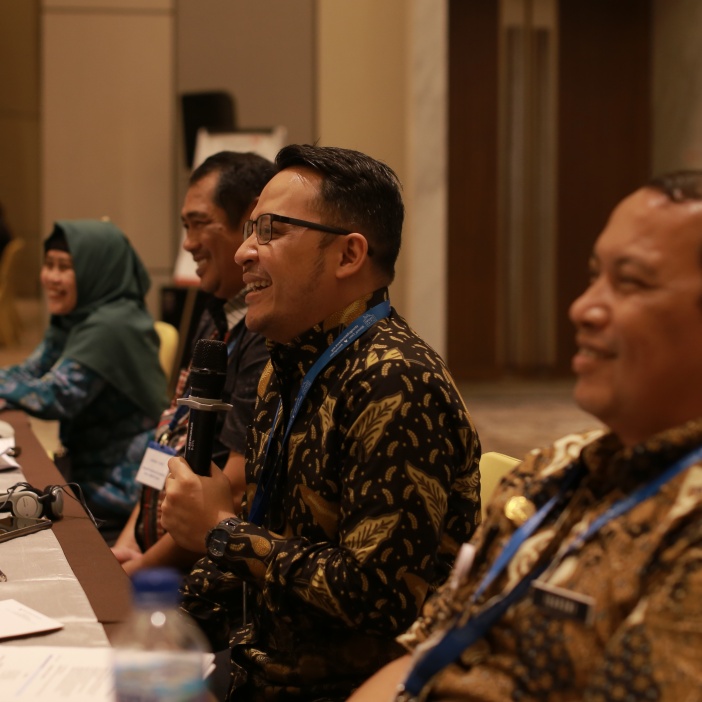In 2023, the Global Center on Cooperative Security and Rights & Security International consulted with nearly 200 peacebuilding and P/CVE implementers, human rights defenders, activists, lawyers, journalists, researchers, community leaders, and scholar-practitioners from around the world, assisted by an advisory committee of 15 diverse civil society representatives.
We found an overwhelming consensus that the UN is failing to meaningfully engage with, promote, and protect civil society in the context of the world body’s counterterrorism efforts, and that there is common desire to see the UN correct this course.
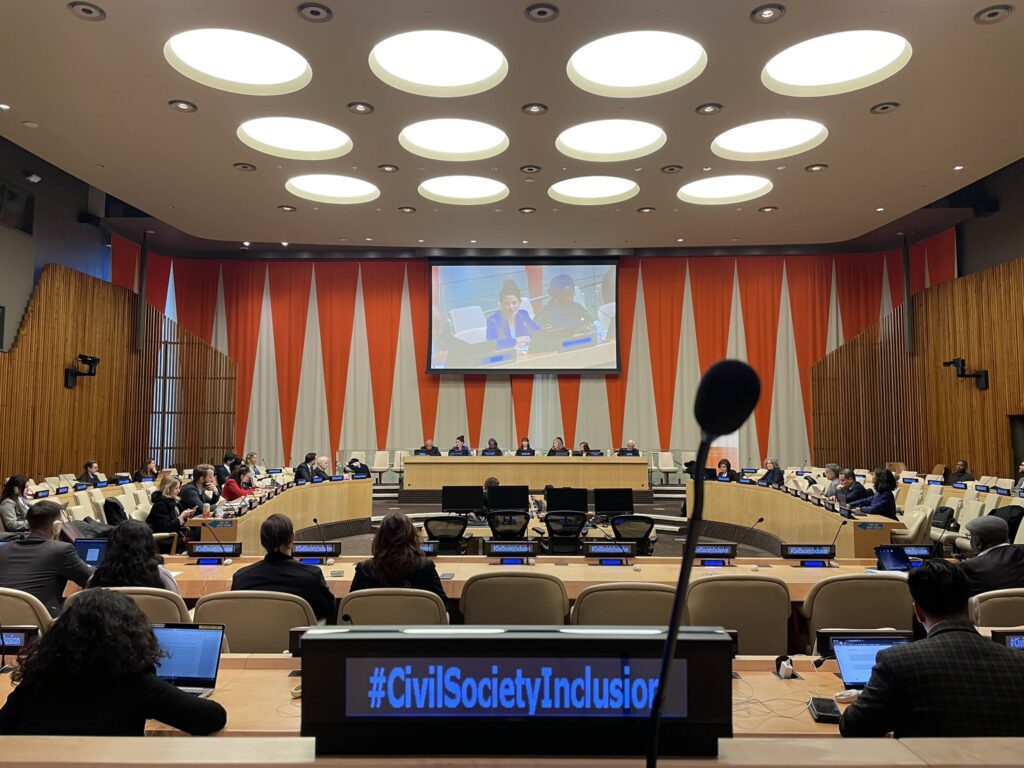
Research Questions
Understanding and Relevance
Do civil society actors understand which UN entities are involved in counter-terrorism and P/CVE? Do they view those UN entities as relevant to the human rights issues that civil society confront and are addressing day-to-day?
Perceived Value and Benefits
Do civil society groups in various regions see value in engaging with the UN on these issues? What are the perceived benefits of engaging with the UN?
Concerns & Preconditions
If civil society groups and activists are hesitant about engaging with the UN on these issues, what are their concerns? What are the necessary preconditions for greater engagement?
Our research process was designed to mirror the engagement practices recommended in the report, grounded in transparency, accountability, and reciprocity – with multiple avenues for civil society partners to engage, participate in decision-making, and impact the project results:
• Advisory Committee: A geographically- and gender- diverse advisory committee of 15 civil society representatives selected from a pool of 121 applicants supported the project team in making decisions around the design and implementation of consultations and aided in our analysis.
• Landscape Assessments: For each in-person regional consultation we also secured local experts to produce landscape assessments of civil society and counterterrorism issues in the region, and translated into local languages as needed, to inform our research and discussions.
• Consultations: Following each of our 10 consultations, we developed and translated as needed detailed reports capturing the discussions and solicited feedback from participants to ensure its accurately reflected the proceedings.
• Online survey: As our consultations were not accessible to many civil society groups, the project team developed a mutli-lingual global survey to elicit the experiences of individuals and organizations that were unable or unwilling to participate in the in-person and virtual discussions.
Beth Alexion, Saferworld; CSO Coalition on Human Rights and Counter-Terrorism
Ali Altiok, United Network of Young Peacebuilders
Miguel de la Vega, Unidosc
Hussein Khaled, Haki Africa
Mira Kusumarini, Empatiku Foundation
Sarah Le Mesurier, International Commission of Jurists
Fionnuala Ní Aoláin, University of Minnesota Law School
Cholpon Orozobekova, Bulan Institute
Inès Osman, MENA Rights Group
Mahi Ramakrishnan, Beyond Borders Malaysia
Arjun Sethi, Georgetown University Law Center
Ashleigh Subramanian-Montgomery, Charity & Security Network
Marco Velasquez Ruiz, Pontificia Universidad Javeriana Bogota
Findings
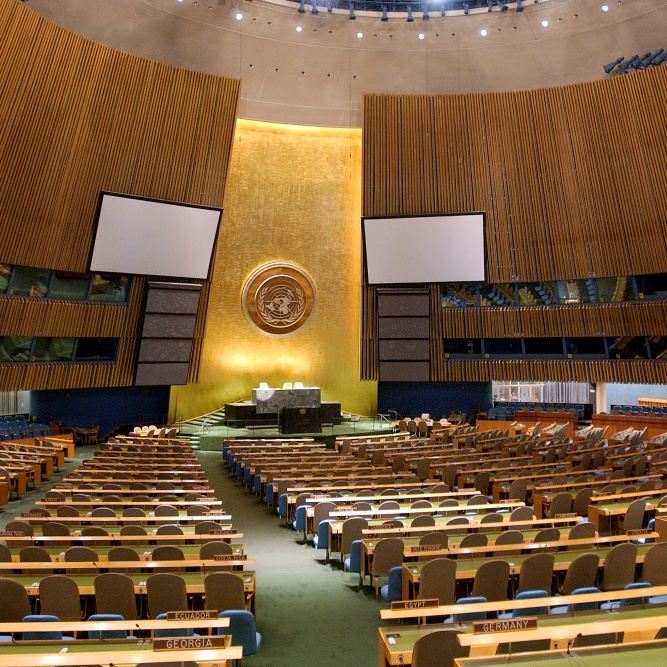
Existing entry points for engagement with the UN’s counterterrorism architecture are extremely limited, and inaccessible to most CSOs – particularly those most impacted by conflict and abusive counterterrorism measures.
Civil society groups clearly see benefits that could accrue from more meaningful engagement with the UN on counterterrorism and P/CVE efforts.
Substantial barriers and risks are impeding meaningful engagement with civil society, and their willingness to engage in the Global South.
Pre-conditions for civil society engagement
In our synthesis, we identify seven critical preconditions around which participant perspectives coalesced for greater civil society engagement with the UN’s counterterrorism efforts:
1. More robust and effective measures to protect civil society from repression ostensibly justified under counterterrorism and P/CVE measures, as well as from reprisals and intimidation before, during, and after engagement.
2. Oversight and accountability practices that ensure counterterrorism and P/CVE norms, guidance, and programs adhere to—and demand Member State compliance with—human rights standards.
3. Clarity about existing avenues, conditions, and procedures for engagement of CSOs within its counterterrorism architecture—and expand them.
4. Explain clearly at the outset what impact civil society participants can expect to have as a result of their engagement and ensure that civil society input consistently has a demonstrable, substantive impact.
5. Adopt more robust accessibility practices for information on counterterrorism policies and programs.
6. Materially compensate and otherwise support, civil society groups.
7. The UN counterterrorism architecture must prioritize engagement with civil society at grassroots and local levels.
These preconditions cannot be overcome by any UN entity overnight, and progress demands buy-in and trust from civil society, as well as substantial political support and investments by Member States.
Steps toward more meaningful CSO-UN engagement in the short term can foster incremental progress toward addressing these preconditions and increase engagement significantly over time.
The report offers a framework and recommendations for the UN and its Member States to meaningfully engage civil society while incrementally addressing the preconditions for engagement.
____________________________________
Final Report
Independent Civil Society–UN Counterterrorism Engagement: A Scoping Report
Author: Matthew Schwartz, Sarah St. Vincent, Tufyal Choudhury, Damarie Kalonzo, and Franziska Praxl-Tabuchi
Date: May 2024
Read the Report
Landscape Assessment Reports
The Scoping Study was informed by a series of regionally focused research products prepared by local civil society experts. These reports were later finalized and prepared for publication with the generous support of the Government of Canada.
Exploring Eastern Africa’s Landscape: A Scoping Study on an Independent Civil Society-UN Counter-Terrorism Engagement Mechanism
Author: Karanja Muraya (Africa Center for Engendered Security), African Journal of Empirical Research 4, no 2 (2023)
Date: Dec 2023
Iniciativas para prevenir el uso indebido de las organizaciones sin fines de lucro en América Latina
Author: Gabriela Pellón (Independent Consultant) and Miguel de la Vega (Unidosc)
Date: January 2024
Redefining civil society’s role in the UN counter-terrorism architecture
Landscape assessment: Middle East and North Africa
Author: MENA Rights Group
Date: May 2024
UN & Multilateral Efforts and Civil Society Engagement on Counterterrorism and Preventing and/or Countering Violent Extremism in South-East Asia: A Landscape Assessment
Author: Marc Batac (Independent Consultant) and Tuan Nguyen-M (Build Program Manager, Initiatives for International Dialogue)
Date: May 2024
Mécanisme d’engagement indépendant entre la société civile et les Nations Unis en matière de lutte contre le terrorisme: Rapport d’état des lieux Afrique de l’Ouest
Author: Abdoulaye Diallo (Independent Consultant) and Mouhamadou Lamine Bara Lo (Independent Consultant)
Date: January 2024
Watch the Launch Event:
Click here to watch the launch event from the UN Web TV site.
